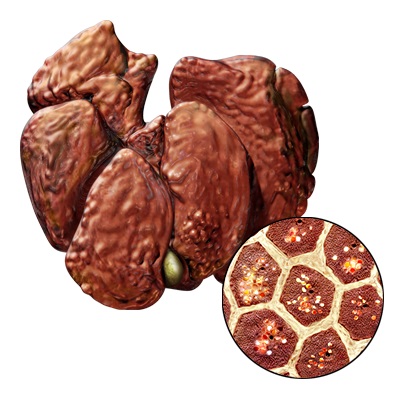End Stage Liver Disease

The liver is present in the abdominal cavity against the diaphragm and performs many functions including:
- Detoxifying and filtering the blood coming from the intestine and other parts of the body
- Helps in sugar, protein, and fat metabolism
- Produces bile which is later stored in the gall bladder that aids in fats emulsification
- Removes toxins from the body
Since, liver functions in filtering and detoxification of blood, it receives blood continuously which makes it prone to inflammation.
Although the liver is capable of repairing itself to a large extent, yet liver abnormalities can cause irreversible damage if they go unnoticed for an extended period. Liver diseases may be symptomatic such as in the case of jaundice the skin looks pale, while in other cases it may be asymptomatic especially in its initial stages, and are found out incidentally during routine laboratory tests.
When the liver is unable to perform its function efficiently, your pet may experience lethargy, behavioral changes, weight loss, jaundice, and seizures. Blood tests, abdominal ultrasound, and liver biopsies help in the ultimate diagnosis of liver disease. When the disease is at the terminal stage it may be unable to find the cause of the disease. At this stage of liver disease, treatment includes antioxidant therapy, anti-convulsant, and anti-inflammatory medication to enhance the quality of living. The only way to get better results by treatment lies in the early detection of the disease. Certain breeds such as Bedlington Terriers, West Highland White Terriers are at higher risk of getting liver disease so regular checkups, complete blood profile, and urine analysis will help in early diagnosis of the disease.
